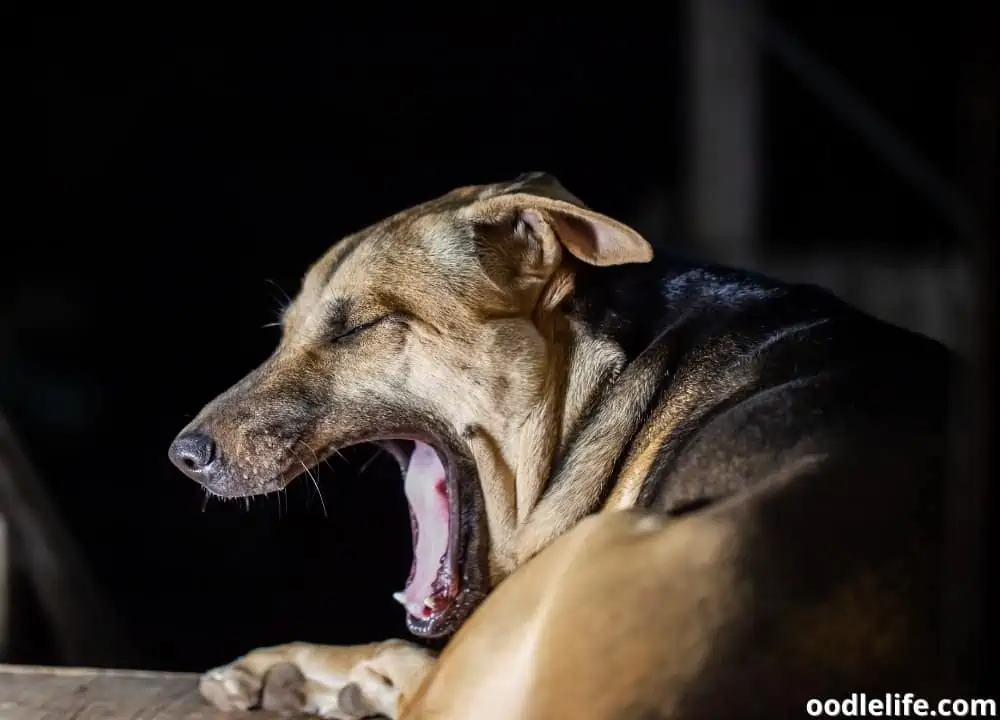Why Does My Dog Sleep In Another Room? [Meaning]
If your dog sleeps in a separate room from you, they are an exception to the norm. A study done by the National Library of Medicine found that when given the option to sleep near people, 86% of dogs chose to sleep near them. So you are probably wondering, “Why does my dog sleep in another room?”
No need to panic; there are reasons for this behavior. They range from the conditions of your room to your dog just not being a cuddler. Below we will explore the possible meaning behind your dog’s uncommon sleeping habit.
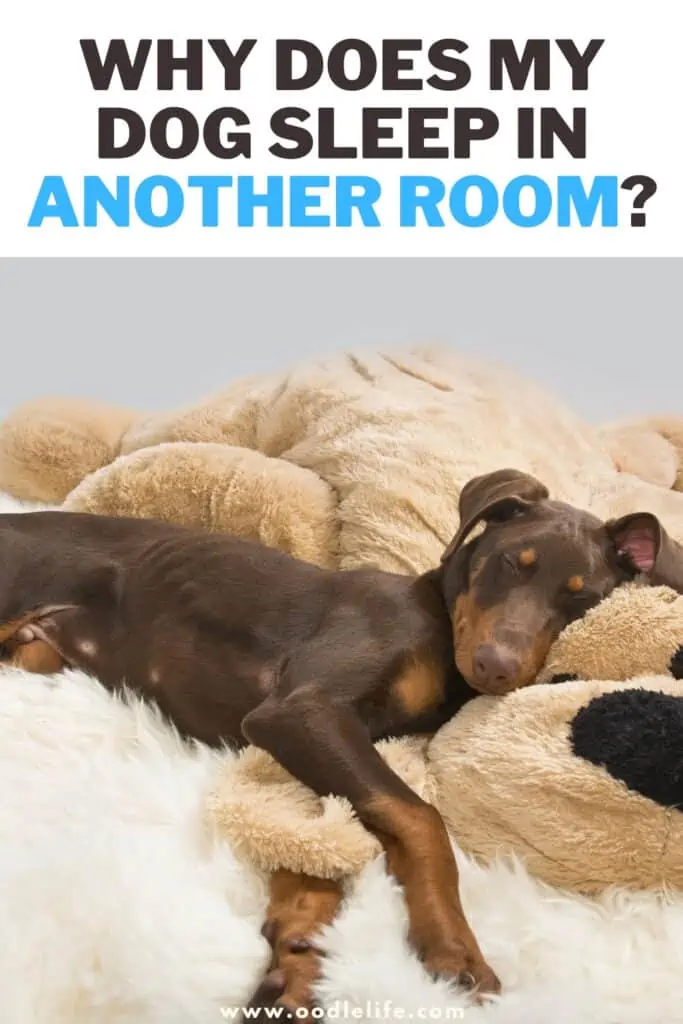
1. Temperature
This factor may be the most obvious reason your dog sleeps in another room. Like people, dogs like to sleep within a comfortable temperature range. Not too hot, not too cold.
The ideal temperature range for your dog depends on the breed and their coat. A Husky, for instance, can easily overheat in a hot room with its thick coat. A short-haired breed like Pit Bulls, on the other hand, may get cold quickly if you keep the AC in your room at a cool temperature.
If you think your dog is getting too hot in your room, try adjusting the AC, opening a window, or turning on a fan. If you feel your dog is getting too cold in your room, try a less cool AC setting in the summer or get a space heater for the area they like to lay down in.
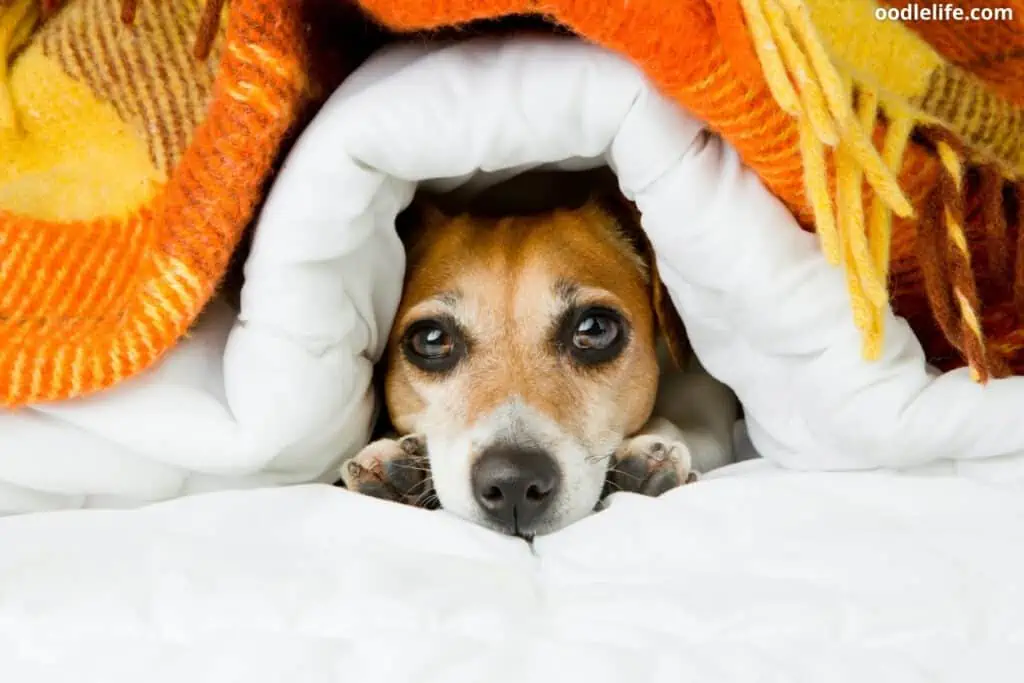
2. Comfort
Different dogs have different comfort preferences when it comes to sleeping—some like hard floors, and some like soft beds. If your bed is too small for your dog or if you do not want your dog sleeping in your bed, consider providing them some floor space.
Most dogs like to sleep on pieces of furniture or in dog beds. If your room has neither, consider obtaining a dog bed that suits their size. If they prefer hard floors and you have a carpet, maybe try placing a mat down.
Giving them their own space in your room, whether on your bed or the floor, is essential if you want them to sleep there.
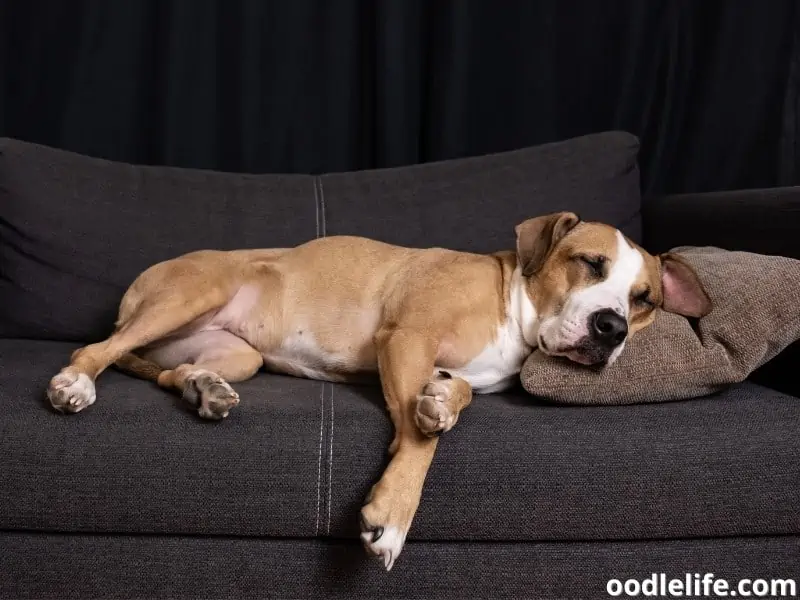
3. Accessibility
It could be that your room is not very easy to access for your dog. They need to be able to come and go as they please. This way, they can get food and water or just wander to another part of the house freely.
If you like to keep your door closed, even if after your dog is in your room, this may deter them from sleeping there. If your dog knows they will be confined there until you wake up, they may choose to sleep elsewhere.
Having an old dog, a small dog, or a dog with movement issues can make stairs a challenge. If your room is at the top or bottom of stairs that your dog has to climb, this may make them sleep in another room.
Your dog will likely choose a room where they can come and leave as they please.
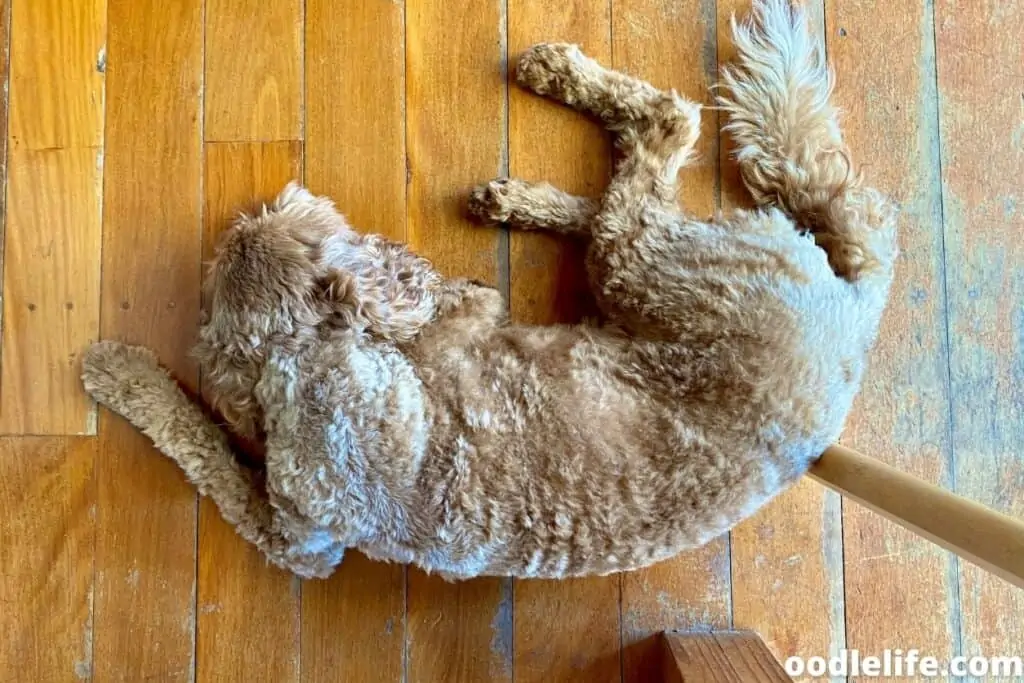
4. A Favorite Spot
Dogs tend to have favorite spots to lounge and sleep. These are generally spots that are most comfortable for them.
If your dog’s favorite spot to lay is in another room, they may prefer sleeping there. This could be for a variety of reasons related to those discussed above.
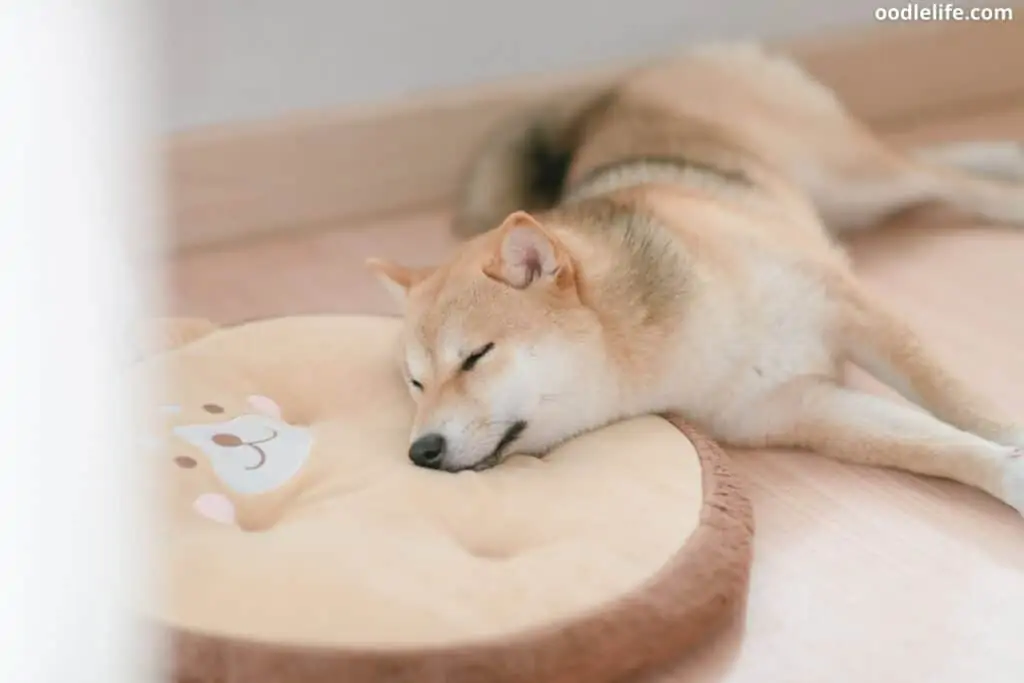
5. Water and Food Access
It is not uncommon for dogs to get up in the middle of the night for food and water. Like us, they sometimes wake up thirsty or hungry at random hours.
Whatever space provides them access to their food and water bowls is one they may prefer to sleep in, even if it is not the same room as where the food and water are located. Access is the crucial part. If you want to incentivize your dog to sleep in your room, try placing extra food and water bowls in your room.
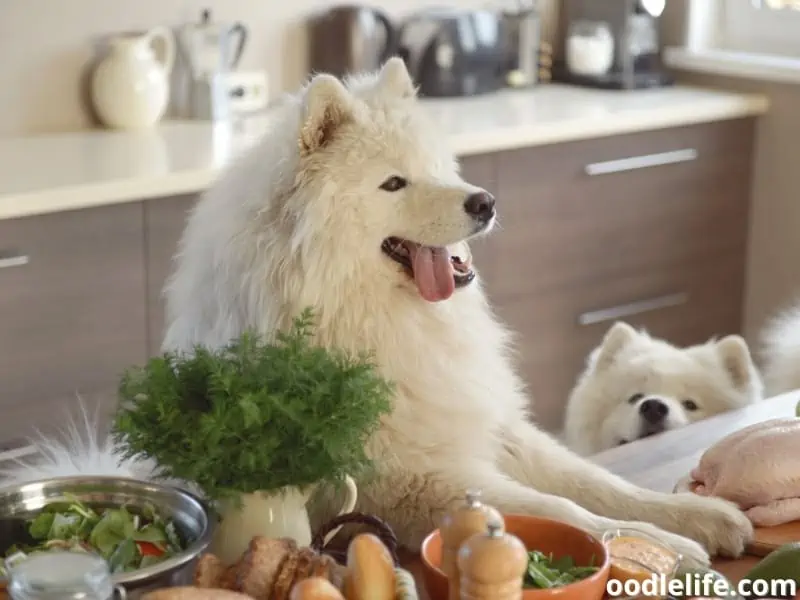
6. Your Room Is Too Small
This reason applies mainly to larger dogs. Have you ever seen a big dog sleep? They like to be sprawled out across a wide area, allowing them to fully relax and regulate body temperature more efficiently.
If your dog chooses to sleep in a bigger room than yours, this could be why. They may just need more space. This behavior could also tie into the temperature factor, as small rooms tend to be warmer.
It could also be more congested in your room, affecting your dog’s overall comfort.
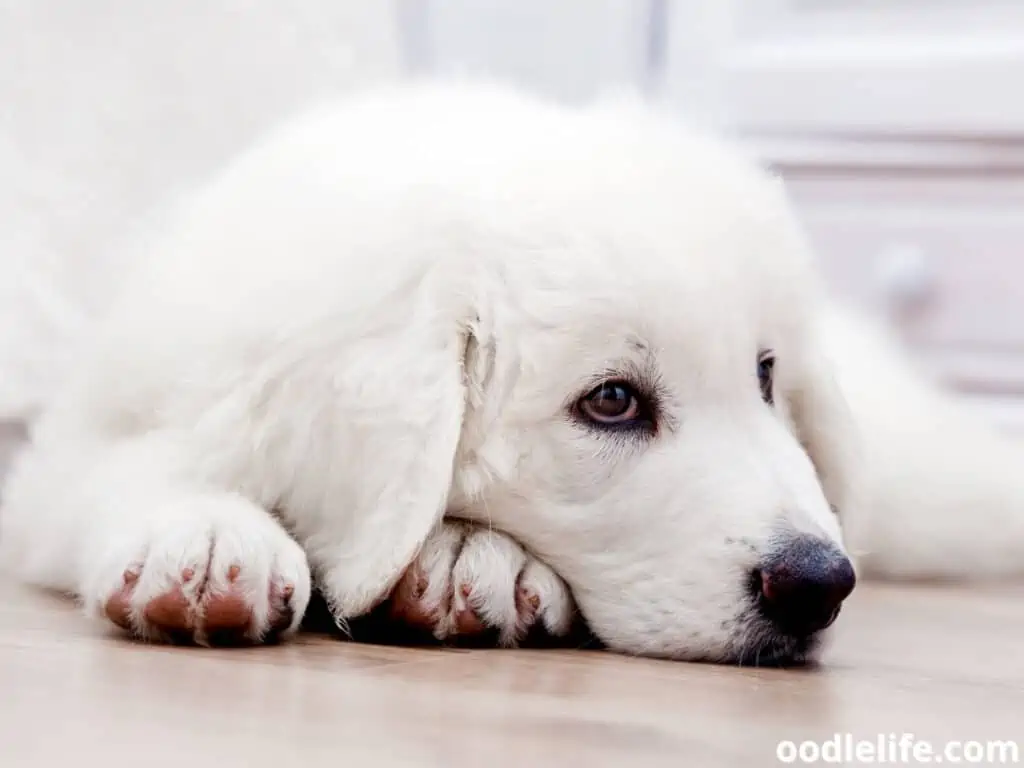
7. Your Dog’s Prior Owner Did Not Allow It
If you are not the original owner of your dog, you may find some of their previously learned habits hard to break. Like humans, dogs establish some of their strongest habits and traits in their early years.
Plenty of people prefer their dogs not to sleep with them. Some even train them to sleep in a kennel. If your dog was taught to sleep in another room, they might just be sticking to the habit.
If this is the case and you want to incentivize your dog to sleep in your room, try rewarding them when they come into your room. Doing this before you go to sleep may be especially effective. However, there is no guarantee this learned behavior will change quickly.

8. Your Dog Has A Different Sleep Schedule
Dogs’ sleep schedules depend on different factors and vary from dog to dog, which can cause your dog to be very awake while you are fast asleep. But for most domesticated dogs, their sleep schedule is related to that of their human companions.
This can change depending on when you go to work and when you go to sleep. Dogs tend to sleep while you sleep and while you are at work. They can sleep up to 12 hours a day and sleep in shorter spurts than people.
Age is also a significant factor in a dog’s sleep schedule. A scientific report published in Nature found that puppies sleep significantly longer than young adult dogs. The study also mentioned that health issues could cause dogs to wake more frequently, which could be especially common in older dogs.
So, maybe your dog does sleep in your room for part of the night. But they wake up much earlier than you and go to another room.
9. Your Dog Prefers To Sleep Alone
It is possible that your dog just is not into cuddling or sleeping close to you. Dogs do have individual preferences. Your dog could just find more comfort sleeping alone.
This is likely nothing to be alarmed about. Some dogs prefer limited amounts of attention in general. Even though they are pack animals, they can prefer to have their alone time.
Also, you may snore too loud and wake Rex up throughout the night.
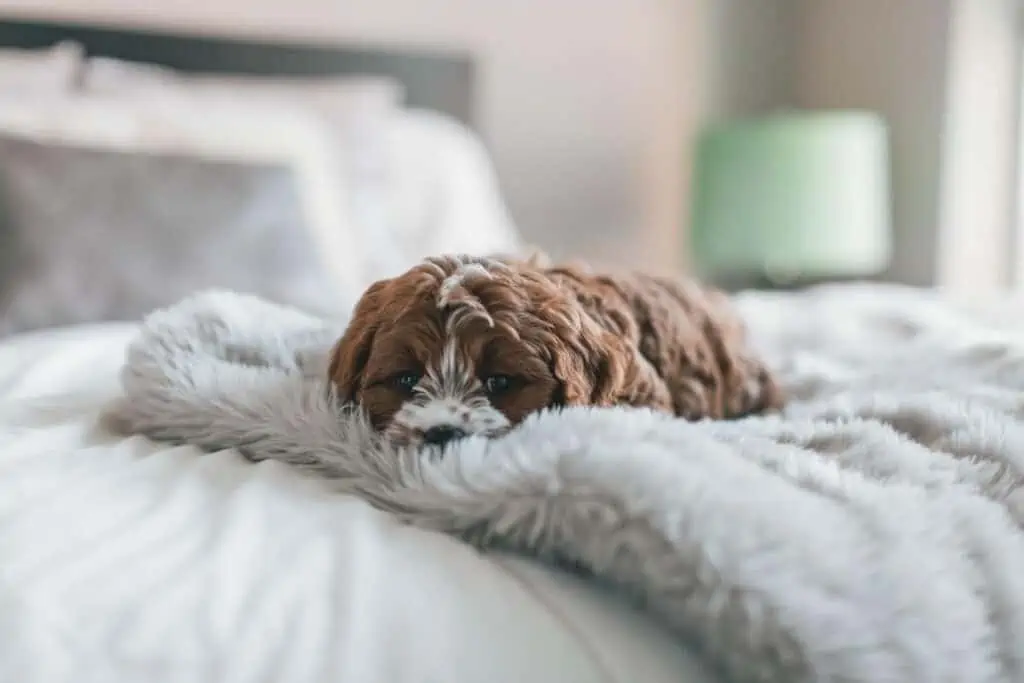
10. Other Pets in Your Room Take Your Dog’s Space
Not all animals sharing space get along well. Dogs and cats are both generally territorial. If another pet sleeps in your room every night, this may be enough to make your dog think twice about joining.
Dogs follow hierarchies. If a smaller dog is intimidated by a larger roommate, the smaller dog may want to sleep in a separate room to avoid confrontation.
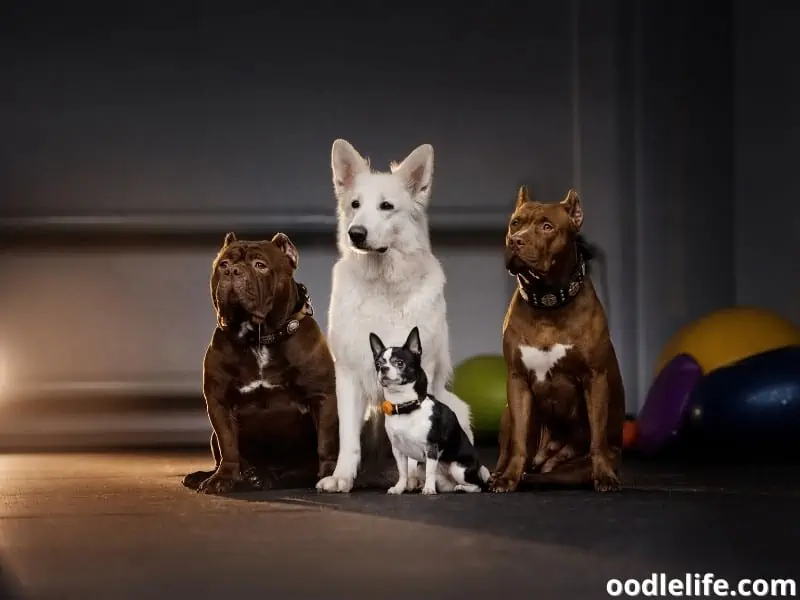
Conclusion
In this article, we’ve presented you with the most relevant information to help you answer the question: “Why does my dog sleep in another room?”
To sum up, dogs have sleep preferences just like us humans. They sleep better in some atmospheres than others. Additionally, every dog is an individual with its own sleeping preferences.
As long as your dog has a comfortable place to sleep, they should be perfectly fine.
